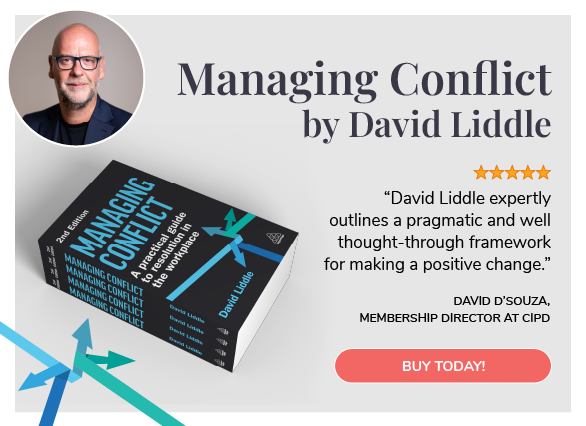
Share article:
Tags:
At our recent Investigation and Audit Services annual conference, we were very lucky to welcome along Patricia Grealish, Chief People Officer at NHS Blood & Transplant. In this post, our Senior Communications Executive, Robyn Marsh has highlighted the main learnings from her presentation…
A self-proclaimed “people professional”, Patricia Grealish holds a wealth of knowledge surrounding the development and delivery of corporate strategy. Within organisations, Patricia underlines the importance of building relationships and communication. She states that it is up to the skills of individual managers and investigators to shape their organisations, and any misconduct, with diplomacy and cultural sensitivity.
“10% of conflict is due to a difference in opinion and 90% is due to the wrong tone of voice. It’s important to note your use of vocabulary, body language, and communication dynamics. Are you reflecting calm and objectivity, or tension and isolation?”
When issues reach formal procedures, it’s stressful for any and all participants: the parties involved, investigators assigned, and surrounding staff. The very nature of an investigation means that restoring relationships becomes expensive, difficult, and ongoing.
The key principles of a fair and thorough investigation
She urged businesses to always ask three imperative questions to ensure a fair and thorough investigation:
1. What is the problem?
To best understand the complexity of the situation, it is vital to review every feature:
- Be conscious of the environment: What is the reality of the organisational culture?
- Relationships are central: Who is assigned to the case? Do they have any personal conflicts or histories that will hinder their objectivity?
- Communication, trust, and transparency are the bedrocks of successful relationships: Be clear on confidentiality and data protection from the outset.
- Planning from end to end is vital.
- Maintain balance, objectivity, and inclusivity: Always be mindful of emotion and suspend judgement.
2. What are the implications?
The inner workings of an organisation, its core system, will affect the ability to effectively conduct investigations. Make sure to review these key organisational areas to ensure that you have the best foundations:
- Policy: This is the skeleton of an organisation. It must be clear and accessible to all; wordy documents can be alienating.
- Culture: Particularly within larger national corporations, it is important to be aware of localised microcultures that will crop up in pockets of your organisation.
- Clarity of management roles and accountability: Leaders are often technically capable to manage people but not emotionally equipped to lead people – there is a clear difference here and managers must be accountable to both sides of this role.
- Effective management training and support: Training is the best investment for a company to prevent stunted growth for managers and, subsequently, their teams. Make sure your leadership, at all levels, is trained with a set of skills to be both competent and emotionally intelligent, particularly with the overlaying impact of the pandemic on mental and physical health.
- Data/tracking: What gets mismeasured, gets mismanaged. Ensure that you have up-to-date, extensive data that will help to uncover weaknesses in your organisation before they escalate.
3. What have we learned from this?
Sometimes, the most important lessons to be learned lie in the wake of the investigation, so be sure to:
- Consider the needs of all parties without assumed wrongdoing.
- Create accountable and clearly defined roles to ensure operations run smoothly.
- Invest in investigation skills and well-designed tools and techniques to facilitate this.
- Incorporate effective planning from start to end: avoiding shortcuts; gathering milestones, documentation, and evidence; allocating regular check-ins; registering cultural and political intricacies; and discussing lessons learned at the end of the process.
- Build end-to-end communication and welfare support, both before and after the case, for all participants.
An Opportunity to Catch Up
We must thank Patricia once again for speaking delivering such a wonderful presentation at the conference. If you missed out and would like to catch up…good news! You can view the full session recording below (or here):








